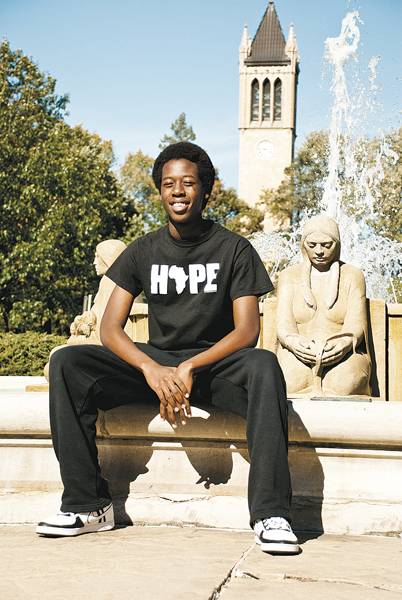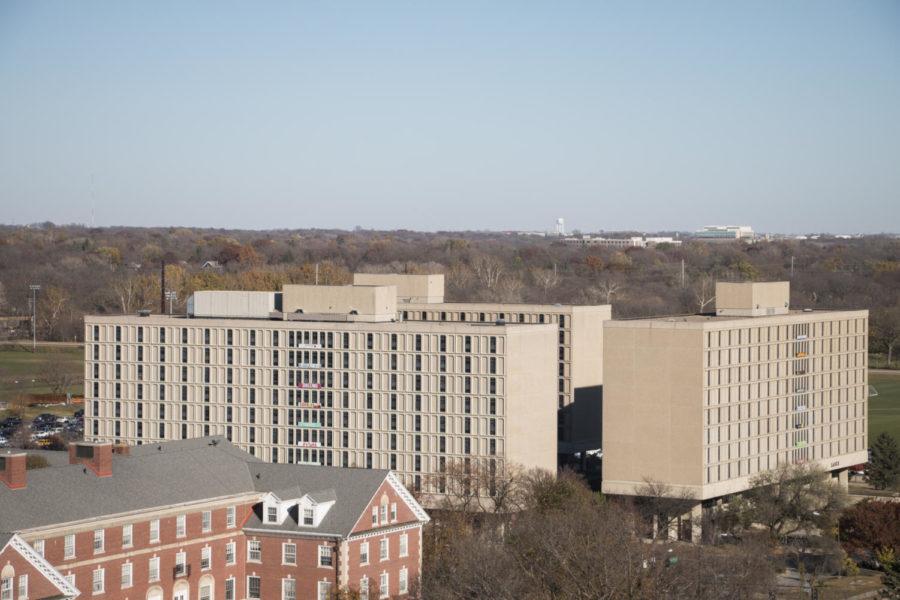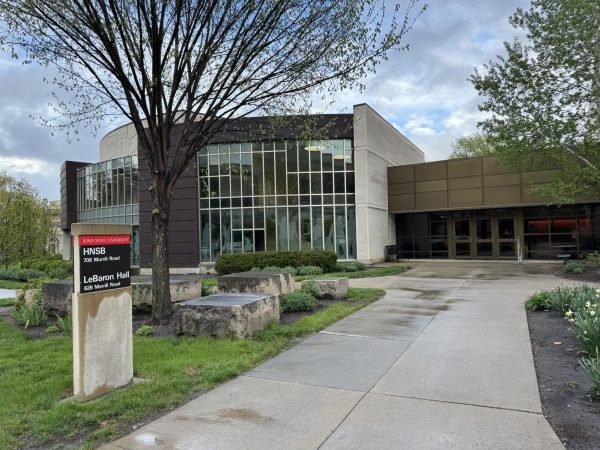Educating abroad

Moses Bomett, pictured above, was born and raised near Nakuru, Kenya. He moved to America for his last two years of high school. Bomett attended Sioux Falls Chrisitian School and later moved to Des Moines where he attended Valley High School. Photo: Karuna Ang/Iowa State Daily
October 18, 2009
Starting with a speech to classmates in high school, an ISU sophomore created an organization to give back to students in his native Kenya.
Moses Bomett, sophomore in engineering, founded Hope 4 Africa, a nonprofit organization that “focuses on problems that cripple Africa and seeks to offer long-term solutions to these problems” during his senior year of high school in Des Moines.
Bomett was born and raised near Nakuru, Kenya. In November 2006, his family moved to America where he finished his last two years of high school.
He initially attended Sioux Falls Christian School, where he and his sister Sarah were the only people from a different ethnic background.
“It was disappointing and discouraging to leave all my friends and relatives, all the people who understood,” Bomett said.
In fall 2007, his family moved again to Des Moines where Bomett attended Valley High School.
“Many times when new students come to a larger high school it can be more than a little overwhelming,” said Tom Narak, superintendent at West Des Moines Community School District and board member of Hope 4 Africa. “Moses explained that he was at a decision point in his life when he came to Valley. He said he could decide to try to just get along and graduate or he could reach out to our students and work together to make a difference in our world.”
It was at Valley High School that Bomett seriously contemplated what accounted for the differences between Kenya and the United States.
“I wanted to understand why each country is the way it is,” Bomett said.
This concern led Bomett to write a speech entitled “The Hope of Africa,” in which he outlined what he believed were the primary problems in Africa.
“I wanted to ask the questions,” Bomett said. “What about Africa? What is the world doing? What can people do?”
This speech was the starting point of Hope 4 Africa.
Bomett said that the public schools in Kenya don’t offer a good education to students, so only Kenyan students whose parents can afford it receive a quality education.
Hope 4 Africa raises money in order to sponsor students who are unable to afford quality private education. They currently work with Ngata Starlets Academy, a private school near Bomett’s Kenyan home.
“The teachers or administrators look at students in the area, background, family, academics and let us know if those kids would be viable for sponsoring,” Bomett said. “And these kids hopefully will become doctors and teachers.”
In addition to sponsoring individual students, Hope 4 Africa has purchased textbooks for Ngata.
Bomett said that if Africans are going to emerge from poverty, they need someone who has “grown up there and knows their problems.”
“People are always talking about how bad things are in Africa, how much poverty and suffering there is,” Bomett said. “I asked myself, ‘When are we going to stop talking and doing something about it?’”
Bomett said the media portrays only the impoverished and often violent side of Africa.
“I believe my continent is a good place” Bomett said. “I believe Africa made me who I am. So I need to give back to Africa as much as I can.”
Bomett said although Hope 4 Africa is currently only involved with Ngata Starlets Academy, his vision for the organization is that one day it will be able to reach every country in Africa.
“Even if we don’t accomplish this, someone someday will look back and say, ‘Look. They started, they did something,’” Bomett said.
Hope 4 Africa at Iowa State will meet at 7 p.m. Tuesday in Carver Hall room 294.
















